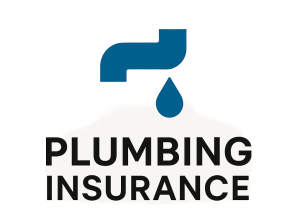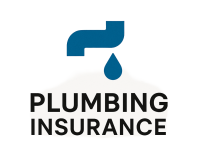Insurance for Plumbers – Everything You Need to Know
Plumbing is one of those careers where skill, experience, and a trusty toolbox are essential—but there’s one more thing you need if you’re going to do it right: insurance. Whether you’re an independent contractor, own a plumbing business, or do residential repairs, insurance is your financial safety net. In this comprehensive guide from Plumbing Insurance, we’ll cover everything you need to know about insurance for plumbers, including residential plumbing insurance, contractor insurance, and insights from plumbing insurance Reddit threads.
Let’s face it—working with water, gas lines, and heavy equipment in unpredictable environments is risky. What happens if a pipe bursts and causes thousands in damages? What if a client sues you for faulty work? Without the right policy, you could be paying those expenses out of your own pocket.
Read on to learn how plumbing insurance protects your career, your business, and your peace of mind.
Introduction to Plumbing Insurance
Why Plumbers Need Insurance
Plumbing might seem straightforward to outsiders—fix a leak, unclog a drain—but pros know there’s a lot more going on. One small mistake could flood a home, damage a commercial property, or even injure someone. That’s where insurance becomes your best friend.
Imagine this: You’re working on a new bathroom installation and accidentally puncture a hidden pipe behind the wall. Water soaks into the drywall and damages the floor. The client sues for $15,000 in repair costs. Without insurance, you’re paying that yourself. With plumbers public liability insurance, your insurer steps in to handle the damage and legal costs.
Not only does insurance protect you from financial fallout, but many clients, especially commercial ones, won’t even consider hiring you unless you can show proof of business insurance. In other words, no insurance = no gigs.
Besides legal protection, insurance for plumbers also helps cover tools, vehicle damage, and injuries. It’s not just about reacting to problems—it’s about being proactive and professional.
What is Plumbing Insurance?
Plumbing insurance is a specific type of contractor insurance that’s tailored to the risks and realities of the plumbing industry. It can include several different types of coverage:
-
General Liability Insurance: Covers property damage and bodily injury to third parties.
-
Plumbers Public Liability Insurance: Essential for claims involving third-party injury or property damage.
-
Tools and Equipment Coverage: Protects the expensive gear you rely on daily.
-
Workers’ Compensation: Required in many states if you have employees.
-
Commercial Auto Insurance: Covers vehicles used for plumbing jobs.
-
Residential Plumbing Insurance: Helps when dealing with individual homeowners and their specific concerns.
Whether you’re installing new piping or repairing a leaky faucet, plumbing insurance is like wearing a helmet in a high-impact job—you hope you never need it, but you’re smart to have it.
Types of Plumbing Insurance
Residential Plumbing Insurance
For plumbers who specialize in homes, residential plumbing insurance is critical. It’s designed to cover the specific risks of working inside private residences—burst pipes, accidental damage, client injuries on-site, and more.
Let’s say you’re snaking a drain and your equipment causes a scratch on an expensive hardwood floor. Or, maybe a chemical you use causes damage to a bathroom fixture. These incidents might seem minor, but they can spiral into expensive claims if the homeowner decides to sue or demand repairs. Residential plumbing insurance gives you coverage for these types of incidents.
It also shows your customers that you take your job seriously. Many homeowners are cautious about letting contractors into their home, especially if they’ve had a bad experience before. Being insured helps build trust—and can even be a deciding factor between you and the competition.
Plumbing Insurance for Homeowners
This one often confuses people. While plumbing insurance for homeowners isn’t for the plumber directly, it’s still a major part of the ecosystem. It refers to add-on insurance that homeowners can purchase to protect against plumbing-related issues like water line breaks or sewer backups.
So why should plumbers care?
Because homeowners with this coverage often need you to perform the service and provide documentation for their claims. In fact, many policies only pay out if the work is done by a licensed, insured plumber. That means if you have proper insurance, you’re more likely to get the job.
Also, being aware of plumbing insurance for homeowners helps you educate your clients and build stronger relationships with them.
Plumbers Public Liability Insurance
This is the backbone of any good plumbing policy. Plumbers public liability insurance protects you from the financial hit if a third party claims injury or property damage because of your work. Whether a customer slips on a wet floor you didn’t clean up or a poorly fitted pipe causes a leak, this coverage helps you sleep at night.
Key things it covers:
-
Third-party bodily injuries
-
Property damage claims
-
Legal costs if you’re sued
It’s worth noting that in many states, public liability insurance is mandatory to operate legally as a plumber.
Contractor Insurance vs Plumbing Insurance
People often use contractor insurance and plumbing insurance interchangeably—but they’re not always the same thing. Contractor insurance is a broad category that can apply to builders, electricians, roofers, and other trades. It covers general risks that all contractors face.
Plumbing insurance, on the other hand, is more specific. It includes protections that relate directly to plumbing work, like water damage liability or sewer line failures.
Think of contractor insurance as the umbrella, and plumbing insurance as the specialty layer underneath. If you’re a general contractor who occasionally does plumbing work, contractor insurance might suffice. But if you’re a full-time plumber, it’s smarter to go with plumbing-specific coverage.

